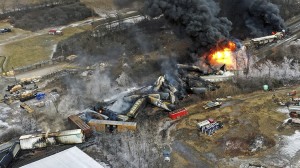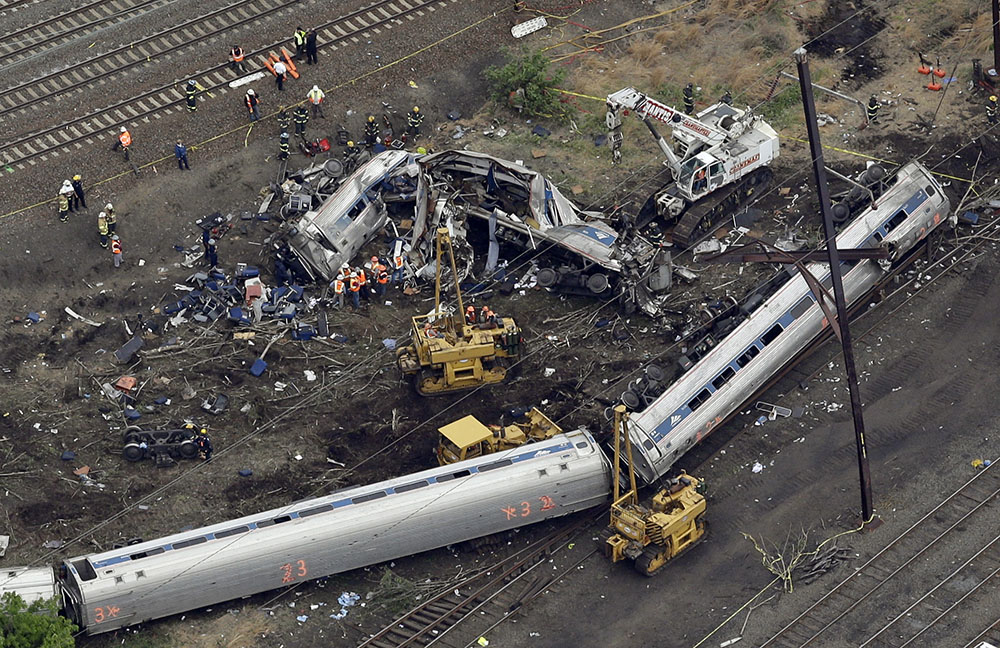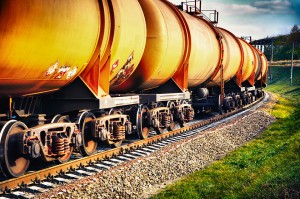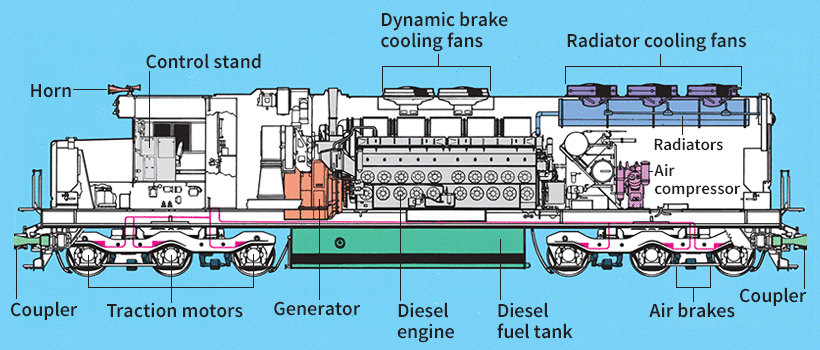Ohio Train Derailment
Thursday, March 23rd, 2023
Drone footage shows part of the Norfolk Southern freight train that derailed in East Palestine, Ohio, on Feb. 3, 2023.
Credit: © Gene J. Puskar, AP Photo
On Friday, February 3, a Norfolk Southern train carrying toxic chemicals derailed in East Palestine, Ohio. East Palestine is near the border of Pennsylvania. Residents in the town have worried about their health and future while teams clean up the mess. Environmental efforts are underway to protect fish and wildlife as much as possible. While almost two months have passed, there are still many unanswered questions.
On February 3rd, the train was heading from Illinois to Pennsylvania when 38 of its 150 cars derailed around 9 PM. Representatives from Norfolk Southern stated the derailment was most likely caused by an overheated wheel bearing on one of the cars. The crash caused a fire that damaged 12 more cars. Shortly after the crash, residents were told to evacuate the area. Five derailed cars were carrying vinyl chloride, used to make plastic products. The cars burned for two days, and then officials began a controlled burn of the remaining chemicals to prevent an unplanned explosion.
The Ohio Department of Natural Resources stated the chemical spill killed nearly 3,500 fish in local streams. Governor of Ohio Mike DeWine announced that residents could return to the area on February 8th, five days after the derailment. While the Environmental Protection Agency conducted tests and began cleaning efforts, residents of East Palestine complained of headaches, coughs, fatigue, and even skin irritation. Later, officials advised residents to drink bottled water, not water from the city’s supply.
Residents have met in town hall sessions to ask how the disaster happened and what will be done to resolve it. Politicians, including former President Donald Trump and Transportation Secretary Pete Buttigieg, have visited the town.
Some of the residents of East Palestine were extras in the motion picture “White Noise,” released by Netflix in November 2022, based on the novel of the same name by Don DeLillo. In the fictional movie, a college professor and his family evacuate a small midwestern town after a train derails, creating an airborne toxic event. Many residents say the disaster is like deja vu since they have seen the movie.
Another Norfolk Southern train derailed in Ohio on Saturday, March 4th. The second train was not carrying hazardous materials and was cleaned up quickly. A derailment in Arizona occurred on March 16th. However, the train was only carrying corn syrup that didn’t spill.
Others around the world are questioning rail safety. On February 28th, a train carrying 350 people in Greece near Larissa crashed into a freight train. The crash killed 57 people, causing an uproar about rail safety in the country.





